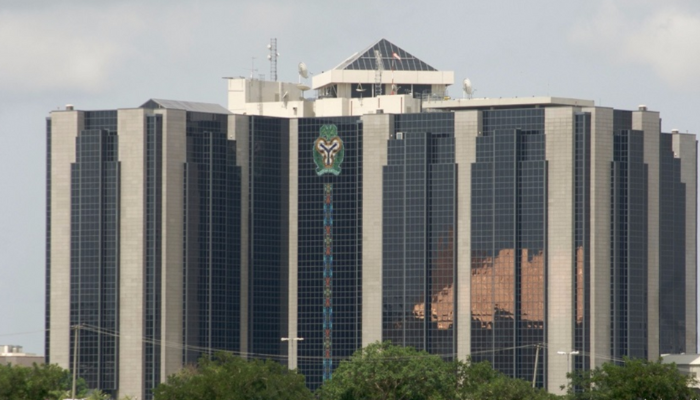Nigeria’s banking sector has witnessed a dramatic shift in liquidity management, as fresh data reveal that commercial banks’ deposits with the Central Bank of Nigeria (CBN) soared by 568 percent in the first nine months of 2025, hitting an unprecedented N146.13 trillion. The spike reflects a combination of regulatory tightening by the apex bank, adjustments in monetary policy, and banks’ growing reliance on the CBN’s standing deposit facility as a safe haven for excess funds.
The figures, which cover the period from January to September, highlight how the CBN’s aggressive liquidity management measures have reshaped financial flows within the sector. In January, banks held about N21.9 trillion in deposits with the CBN, but by September the figure had ballooned more than fivefold, driven largely by sustained mop-up operations designed to tame inflation and stabilize the naira. Analysts say the surge underscores the CBN’s renewed commitment to tightening monetary conditions, even as banks recalibrate their strategies amid rising interest rates and volatile market dynamics.

The central bank, under Governor Olayemi Cardoso, has introduced a raft of policies since the start of the year to curb inflationary pressures and rein in excess liquidity. Key among these measures is the regular issuance of open market operations (OMO) bills and adjustments to the cash reserve ratio (CRR), which compel banks to keep a larger portion of their deposits sterilized with the CBN. By directing banks to channel more liquidity into its vaults, the CBN has sought to limit the volume of money circulating in the economy, in hopes of dampening speculative attacks on the naira and moderating price increases.
While the strategy appears to be having some effect on curbing inflation, the massive rise in bank deposits at the CBN has sparked debate about its implications for credit availability and economic growth. Critics argue that by locking up trillions in bank reserves, the CBN may inadvertently constrain lending to businesses and households, slowing down productive investment at a time when the economy requires stimulus. Already, businesses across key sectors such as manufacturing and agriculture have complained about high borrowing costs and reduced access to affordable credit.
On the other hand, proponents of the policy say the short-term pain is necessary to restore macroeconomic stability. With inflation still hovering in double digits and foreign exchange markets facing pressure, they contend that the apex bank must prioritize stability over expansionary credit. By incentivizing banks to park excess liquidity at the CBN, policymakers aim to instill discipline in the financial system and prevent reckless lending that could fuel further inflation.
The sharp rise in deposits has also been aided by the CBN’s decision to maintain attractive interest rates on its deposit facilities, giving banks a risk-free avenue to earn returns while keeping funds secure. For many lenders, the option of placing funds with the CBN has become more appealing than extending risky loans in a challenging economic environment. This has reinforced the cycle of high reserves, limited credit growth, and slower-than-expected recovery in certain sectors.
Data from the financial markets suggest that the liquidity mop-up is also reshaping interbank dynamics. With more funds tied up at the CBN, the cost of overnight borrowing among banks has increased, tightening conditions further in the money market. Analysts believe this trend could persist if the CBN continues with its hawkish stance, especially as it seeks to maintain currency stability ahead of year-end pressures.
The development comes against the backdrop of broader economic reforms by the Federal Government, which has promised to stabilize the macroeconomic environment through a mix of fiscal discipline, subsidy removals, and investment in local production. However, the balancing act between controlling inflation and sustaining growth remains delicate. Some economists warn that if lending to the private sector continues to shrink, it could undermine the government’s industrialization and job-creation goals.
Meanwhile, banks appear to be adjusting their strategies to navigate the tightening environment. Many have ramped up investments in government securities, which offer stable returns, while scaling back on riskier lending portfolios. Others are exploring digital products and non-interest banking services to diversify revenue streams amid constrained credit growth. The surge in deposits at the CBN, therefore, reflects not only regulatory pressures but also banks’ cautious approach in uncertain times.
Market watchers note that the trend will be closely monitored in the final quarter of the year, as the CBN may reassess its monetary stance depending on inflation trends and foreign exchange market stability. If inflation shows signs of easing, some analysts believe the apex bank could gradually relax its liquidity tightening measures to free up more funds for lending. Until then, the record-breaking deposits highlight both the scale of the CBN’s intervention and the extent to which banks are aligning with its policies.
For ordinary Nigerians, however, the immediate concern remains the knock-on effects of these monetary decisions on credit costs, business survival, and job creation. As banks continue to funnel trillions into the CBN’s vaults, small businesses and households may find themselves squeezed by limited financing options, underscoring the difficult trade-offs in the country’s economic management.
In sum, the 568 percent rise in banks’ deposits with the CBN to N146.13 trillion within nine months reflects a powerful signal of Nigeria’s current monetary reality: a central bank determined to tighten liquidity at all costs, and a banking sector reshaping its operations in response. Whether this strategy delivers long-term stability without crippling growth will be one of the defining questions for the economy as 2025 draws to a close.
Support InfoStride News' Credible Journalism: Only credible journalism can guarantee a fair, accountable and transparent society, including democracy and government. It involves a lot of efforts and money. We need your support. Click here to Donate
